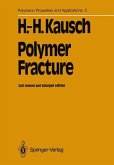A backward glance of the many new industries that emerged in the 20th century would surely recognize communications, automobile, aircraft, computer and several others that have had a global impact on world economy. Yet another industry, and an often neglected industry, made its debut early in the 20th century - the Plastics Industry. The Plastics Industry owes its identity to the brilliance of Dr. Leo Hendrik Baekeland (1863 -1944). He discovered the technique, currently in use to this day, to manu facture highly crosslinked plastics by transforming monomerk and/or oligomeric phenolic materials into attractive phenolic products. Today phenolics represent one of the many different types of com mercially available plastics (thermoset and thermoplastic). Phenolics are distinguished by a broad array of application areas that utilize phenolics as compared to other thermoset or thermoplastic resins. Thermoplastic resins transformed into molded products, films or synthetic fibers (polypropylene as an example) are rapidly recognized as "plastics" whereas the phenolic resin is a component in a material system and the identity of the phenolic resin within the system is not easily identified as "plastic". These systems consist of fiber reinforced composites, honeycomb paneling, electrical Iaminates, acid resistant coatings, wood panels, glass fiber or rock wool insulation. Phenolic resin identity is hidden and has little consumer recognition or identity.








